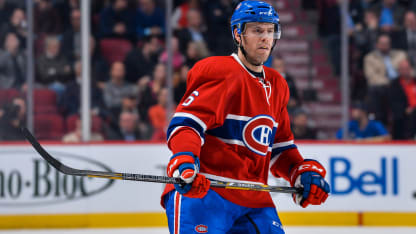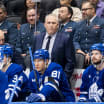On June 29, the Montreal Canadiens and Nashville Predators made a blockbuster trade involving each team's top defenseman, P.K. Subban and Shea Weber. Based on early results, Weber is providing the Canadiens with the better immediate return.
The Canadiens are 11-1-1 and lead the NHL with 23 points. The Predators are 4-5-3, and their 11 points are one more than the Colorado Avalanche and Arizona Coyotes, who are tied for last in the Western Conference. Montreal needed that strong start to put last season's disappointment behind it; a knee injury to goaltender Carey Price on Nov. 25, 2015, sent the Canadiens' season into a nosedive. They were 17-4-2 and led the NHL with 36 points when Price was injured and went 2-0-1 in their next three games, but had a League-worst 19-34-3 record after Dec. 1 and failed to qualify for the Stanley Cup Playoffs.
Canadiens get faster results from Shea Weber trade
Defenseman has keyed Montreal's quick start, P.K. Subban taking longer to adjust in Nashville

© Minas Panagiotakis/Getty Images

















